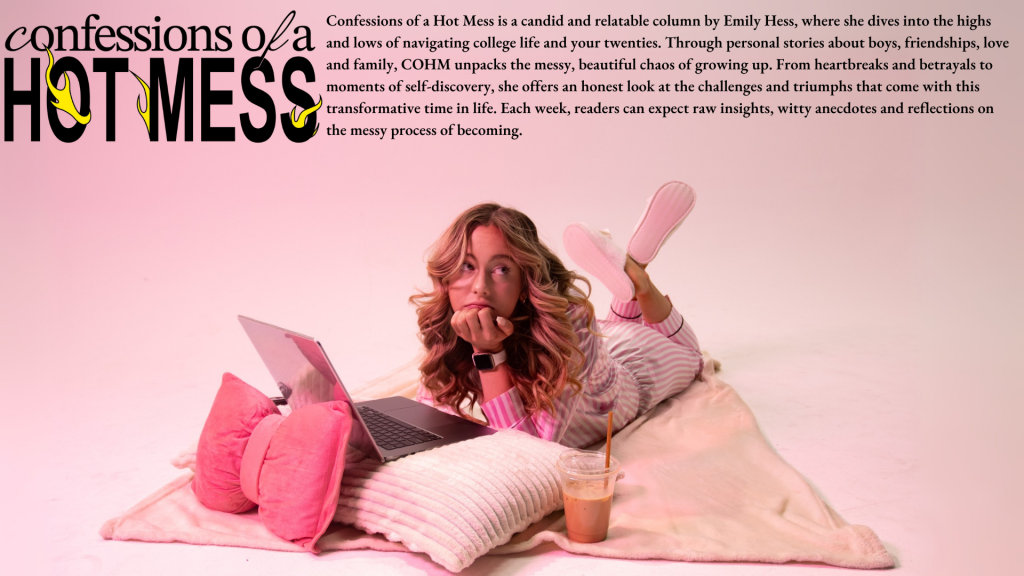This past Saturday, I found myself out with friends, enjoying a typical night of dancing and karaoke. That is, until I overheard something that took me out of the moment. Amid the clinking glasses and the chaotic energy of the bar, a girl leaned into her friend and said, over the loud music, “I can fix him!” Her friend rolled her eyes, and in that brief interaction, it felt like the entire bar went silent for me. Everything stopped, and that one phrase echoed in my mind.
Why do we think we can fix people?
It’s a sentiment I’ve come across before, mostly in memes or as a joke or even in music: I Can Fix Him… No Really I Can. But hearing it out loud made it feel uncomfortably real. The idea that someone can—or even should—”fix” another person in a relationship is misguided and harmful.
When you think about it, “fixing” implies that something is inherently wrong or broken with the other person. It frames them as flawed, with the fixer cast as some kind of hero. But relationships aren’t about one person being whole while the other needs to be repaired. That dynamic creates an imbalance, a power struggle where love becomes conditional upon change.
I, myself, have fallen into this trap before. With past partners, I’ve convinced myself that if I just loved them hard enough or supported them enough, I could fix the things that were wrong in their lives. It was a rude awakening to realize that people don’t change because you want them to. They only change when they want to. Trying to fix someone leads to disappointment, frustration and ultimately, resentment.
On the other hand, I’ve been on the receiving end of this mindset. I’ve been told that something was “broken” about me, that I needed to be fixed. It’s a phrase that cuts deep. Being labeled as broken isn’t just insulting—it’s dehumanizing. It strips away your agency, suggesting that your flaws define you, that you’re something less than whole until someone else comes along to patch you up. And the person who says this often frames themselves as the solution, as if they alone hold the key to your healing.
But here’s the truth: no one can fix you. No one else can force you to change, grow or heal. That’s an internal journey, one you navigate at your own pace and on your own terms.
To me, being called broken, or thinking you can fix someone else, misses the entire point of what relationships should be about. A relationship isn’t a repair project. It’s not about finding someone with cracks and gluing them back together. It’s about seeing someone as they are—flaws, scars, and all—and accepting them without conditions. Real love, real connection, comes from understanding and support, not from trying to mold someone into the image of who you think they should be.
That’s not to say we shouldn’t expect growth in our relationships. Growth is essential, but it doesn’t come from one person pressuring another to change. It comes from mutual respect, from the space you give each other to evolve. It comes from compromise, from meeting each other where you’re at, not from fixing or being fixed.
The truth is, when we think we can fix someone, we’re often avoiding something within ourselves. It’s easier to focus on someone else’s flaws than to confront our own insecurities. In trying to fix others, we shift attention away from the discomfort of looking inward. And in the end, it’s a futile effort. People don’t change just because you want them to, or even because they should. They change when they’re ready, and that’s something we have to respect.
So, the next time you catch yourself thinking, “I can fix them,” pause. Ask yourself why you feel the need to. Instead of trying to change someone, try accepting them. Instead of fixing, focus on understanding. Because no one is perfect, but that doesn’t mean anyone is broken.

Confessions of a Hot Mess is the personal work of Emily Hess. The opinions expressed in this column, as well as those published in The Nevada Sagebrush, are solely those of the author and do not necessarily reflect the views of The Sagebrush or its staff. Hess is a student at the University of Nevada studying journalism. She can be reached at emilyhess@sagebrush.unr.edu and on Twitter @emilyghess3.
